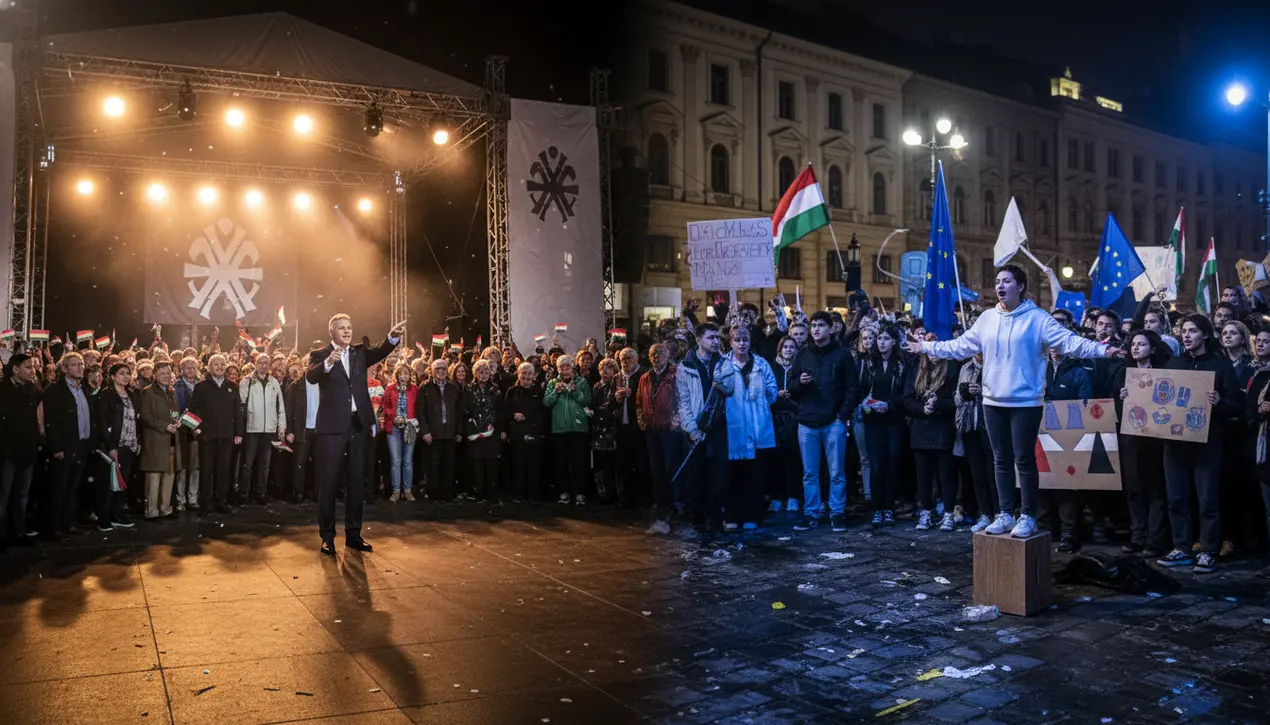
PoliticselectionsPresidential Elections
Hungary's Orban and Opposition Hold Rallies Before Elections
MA
Mark Johnson
2 hours ago7 min read3 comments
The political battlefield in Hungary is crackling with intensity as Prime Minister Viktor Orbán and a fragmented opposition launch into a final, frenzied week of campaigning, their respective rallies setting the stage for a pivotal electoral showdown. This surge in political theater arrives hot on the heels of Orbán's strategically significant visit to the White House, where he secured a crucial one-year exemption from US sanctions on Russian oil and gas imports—a masterstroke of pragmatic diplomacy that he is now wielding as a central campaign weapon.For Orbán, this wasn't just a meeting; it was a televised validation of his long-standing 'Eastern Opening' foreign policy, a proof-of-concept delivered directly to the Hungarian electorate that his contentious relationship with Moscow pays tangible dividends, insulating Hungarian families from the worst of Europe's energy crisis. His rallies, therefore, are less about inspiration and more about a display of raw political strength and delivered results, framing the election as a choice between his brand of secure, nationalist governance and what he labels the opposition's chaotic subservience to Brussels.The opposition, a broad and often unwieldy coalition spanning from socialists to the formerly far-right Jobbik, is fighting an uphill battle, its rallies charged with a desperate energy as it attempts to unite disparate voters under a single banner of democratic renewal and European integration. Their challenge is Herculean: to cut through Fidesz's dominance of the media landscape and convince voters that Orbán's diplomatic 'wins' come at an unacceptable cost to Hungary's democratic institutions and its place within the Western alliance.They are hammering on themes of corruption, the erosion of the rule of law, and the long-term strategic danger of his Putin-friendly stance, arguing that the sanctions waiver is a short-term fix that mortgages the nation's future. This electoral contest is a microcosm of a larger European struggle, pitting illiberal democracy against its liberal counterpart, with Orbán as its standard-bearer.The campaign machinery on both sides is operating at a fever pitch, with targeted digital ads, saturation of public spaces with posters, and a relentless media war. Polls, though heavily influenced by Fidesz's structural advantages, show a race that is closer than the ruling party would like to admit, suggesting that voter turnout will be the ultimate decider.The outcome will reverberate far beyond Budapest, sending a clear signal to the Kremlin, to Brussels, and to Washington about the resilience of illiberalism in the heart of Europe. A victory for Orbán would embolden similar movements across the continent and cement a pro-Russian foothold within NATO, while an opposition upset, however unlikely, would be hailed as a democratic resurrection. As the final speeches are made and the crowds disperse, Hungary stands at a precipice, its future trajectory hanging in the balance between a past decade of consolidated power and an uncertain, potentially tumultuous, path back toward the European mainstream.
#featured
#Hungary
#Viktor Orban
#elections
#opposition rally
#US sanctions
#Russia
#oil and gas
#White House
Stay Informed. Act Smarter.
Get weekly highlights, major headlines, and expert insights — then put your knowledge to work in our live prediction markets.
Related News
Comments
Loading comments...
© 2025 Outpoll Service LTD. All rights reserved.